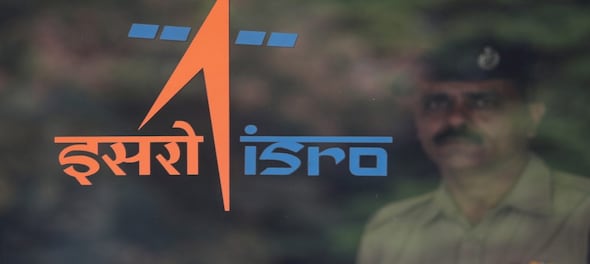
The Indian Space Research Organisation (ISRO) on Thursday announced that it had completed the final long-duration hot test of the human-rated L110-G Vikas engine, a major achievement in the development of the Gaganyaan human spaceflight program.
The test was conducted for the planned qualification duration of 240 seconds at the ISRO Propulsion Complex in Mahendragiri, Tamil Nadu, and marks the successful completion of all planned qualification tests for the engine.
"With this test all the planned qualification tests of the engine are completed successfully," ISRO, the Bengaluru-headquartered national space agency said in a statement.
The human-rated launch vehicle (LVM3-G) uses two L110-G Vikas engines in a clustered configuration, with the air-lit liquid core stage being propelled by these engines. The L110 stage for Gaganyaan was designed and realised at the Liquid Propulsion Systems Centre, and the assembly, integration, and testing were carried out at IPRC. The Engine Gimbal Control system was developed by Vikram Sarabhai Space Centre.
The Vikas engine uses storable propellants in a pump-fed gas generator cycle and has higher structural margins for sub-systems, improved assembly processes, and additional measurements for health monitoring. It underwent a step-by-step development hot test campaign at the Principal Test Stand, IPRC.
The test campaign, which involved nine engines undergoing 14 hot tests with a cumulative duration of 1,215 seconds, including four long-duration tests of 240 seconds each, encompassed extreme operating conditions compared to flight operating conditions.
Four sets of hardware used in this test program were fabricated by various Indian industries.
ISRO also qualified the electro-mechanical Gimbal actuators and Command System module for engine pilot pressure control, with multiple redundancies in the test.
The agency achieved the human-rated L110-G Vikas engine qualification within a short span of three years, drawing from its extensive legacy and experience in liquid rocket engine development.
Also read: India unveils space design lab for start-ups
Check out our in-depth Market Coverage, Business News & get real-time Stock Market Updates on CNBC-TV18. Also, Watch our channels CNBC-TV18, CNBC Awaaz and CNBC Bajar Live on-the-go!


Election Commission grants shifting of 7 polling stations in Kullu, Mandi, Shimla and Kinnaur
May 5, 2024 6:50 PM
Tents, fans, ambulances – Karnataka gears up for voting on May 7 amid soaring heat
May 5, 2024 6:19 PM
Karnataka Congress files complaint against BJP’s JP Nadda and others over alleged MCC violation
May 5, 2024 3:20 PM
PM Modi to contest from Varanasi, to file nomination papers on May 14
May 5, 2024 2:49 PM

